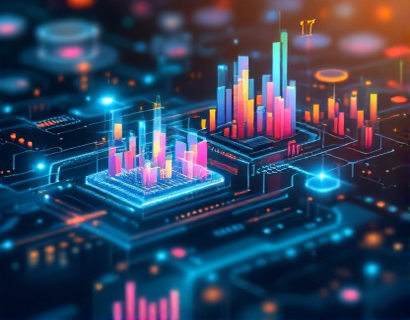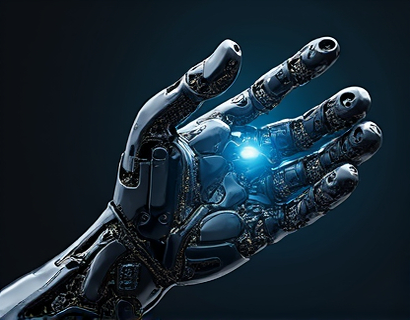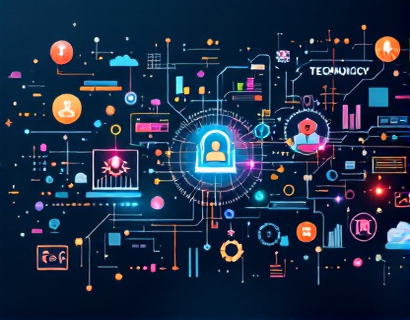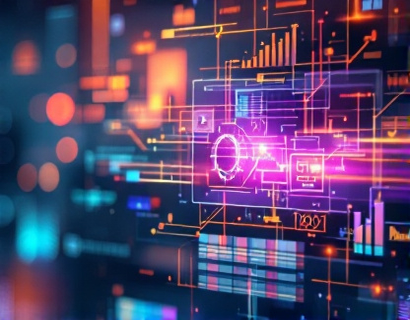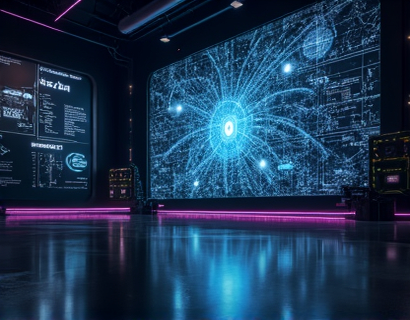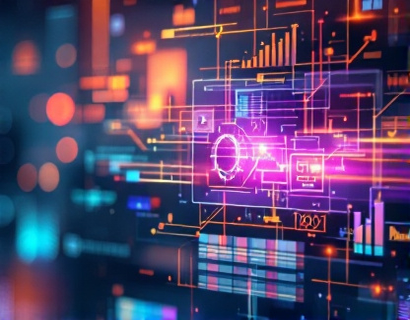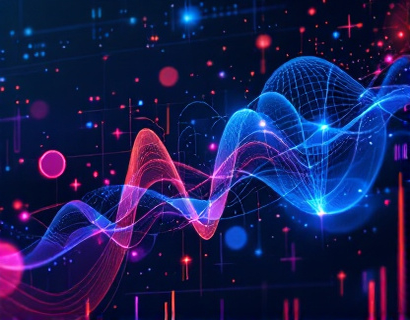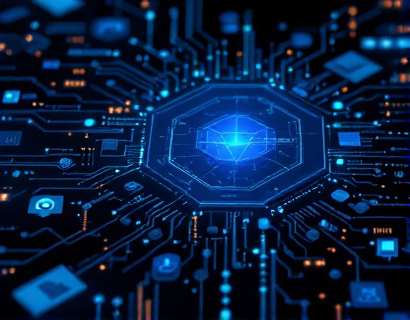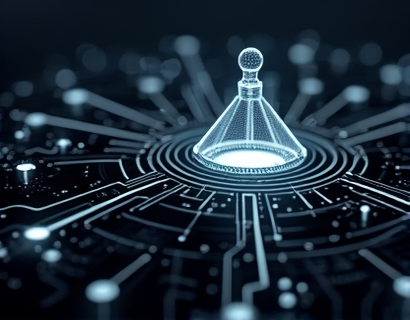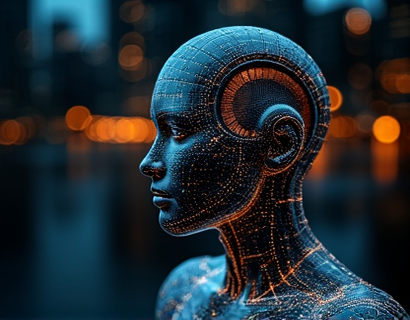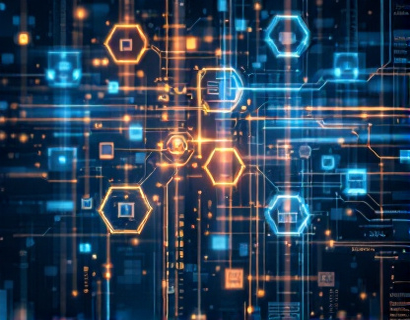Advancing Digital Transformation: The Synergy of Crypto and AI
The intersection of cryptocurrency and artificial intelligence (AI) is catalyzing a new era of digital transformation, redefining how we interact with apps and services. This fusion of technologies is not just an evolution but a revolution, promising enhanced user experiences and unprecedented levels of efficiency. As we delve into this topic, it's essential to understand the foundational elements that make this synergy possible and the profound impact it has on various industries.
Foundations of Cryptocurrency and AI
Cryptocurrency, since its inception with Bitcoin in 2009, has disrupted traditional financial systems by introducing a decentralized, secure, and transparent method of transaction. The underlying technology, blockchain, ensures that transactions are immutable and verifiable without the need for intermediaries. On the other hand, AI, with its ability to learn from data, adapt to new inputs, and perform tasks that traditionally required human intervention, has transformed numerous sectors from healthcare to finance.
The convergence of these two technologies leverages the strengths of both. Blockchain provides a secure and transparent environment for AI models to operate, ensuring data integrity and reducing the risk of fraud. Conversely, AI enhances the functionality of blockchain by optimizing processes, predicting trends, and automating complex tasks. This synergy is paving the way for innovative solutions that were previously unimaginable.
Enhanced Security and Trust
One of the most significant benefits of combining crypto and AI is the enhancement of security and trust in digital interactions. AI algorithms can detect and prevent fraudulent activities by analyzing patterns and anomalies in real-time. For instance, machine learning models can identify suspicious transactions on a blockchain network, thereby strengthening the security framework. This dual-layer security ensures that users can transact with greater confidence, knowing that their data and assets are protected.
Moreover, smart contracts, self-executing contracts with the terms directly written into code, benefit immensely from AI integration. AI can automate the execution of these contracts based on predefined conditions, reducing the need for manual oversight and minimizing the risk of errors. This not only speeds up processes but also builds trust among users who can verify the integrity of transactions through transparent and auditable records.
Optimized User Experiences
The integration of AI in crypto applications is revolutionizing user experiences by making them more intuitive and personalized. AI-driven chatbots and virtual assistants can provide 24/7 customer support, answering queries and guiding users through complex processes. These AI entities learn from user interactions, continuously improving their responses and adapting to individual preferences. This level of personalization enhances user satisfaction and engagement, making digital services more accessible and user-friendly.
Furthermore, AI can analyze vast amounts of data to offer tailored recommendations and insights. For example, in decentralized finance (DeFi) platforms, AI algorithms can suggest optimal investment strategies based on market trends and user behavior. This not only empowers users to make informed decisions but also enhances the overall user experience by providing valuable and actionable information.
Efficiency and Automation
Automation is a cornerstone of the crypto and AI synergy, driving efficiency across various applications. Smart contracts, powered by AI, can automate routine tasks such as payments, asset transfers, and contract executions. This reduces the need for intermediaries, lowering transaction costs and increasing the speed of processes. In supply chain management, for instance, AI can track and verify the movement of goods using blockchain, ensuring transparency and efficiency throughout the process.
Additionally, AI can optimize resource allocation and energy consumption in blockchain networks. By predicting network traffic and adjusting computational resources accordingly, AI helps in maintaining the performance and sustainability of these networks. This not only enhances the operational efficiency but also aligns with the growing emphasis on environmental responsibility in the tech industry.
Innovative Applications and Use Cases
The potential applications of crypto and AI are vast and varied, with new use cases emerging regularly. In the realm of healthcare, AI-driven analytics on blockchain can secure patient data while enabling seamless sharing among healthcare providers. This ensures that medical records are accurate, up-to-date, and accessible only to authorized personnel, improving patient care and outcomes.
In the real estate sector, AI can analyze market data and predict property values, while blockchain ensures transparent and secure property transactions. This combination reduces fraud and increases the efficiency of the real estate market. Similarly, in the gaming industry, crypto and AI can create decentralized gaming platforms where players own their in-game assets and earn cryptocurrency through gameplay, fostering a more engaging and rewarding experience.
Another promising area is the Internet of Things (IoT). AI can process and analyze the vast amounts of data generated by IoT devices, while blockchain ensures the security and privacy of this data. This synergy can lead to smarter cities, where IoT devices manage everything from traffic flow to energy consumption, all secured and optimized by AI and blockchain technologies.
Challenges and Considerations
Despite the numerous benefits, the integration of crypto and AI is not without challenges. One of the primary concerns is the regulatory landscape. As both technologies operate in relatively uncharted territories, regulatory frameworks are still evolving. Ensuring compliance while innovating is a delicate balance that requires continuous monitoring and adaptation.
Another challenge is the technical complexity involved in integrating these technologies. Developing robust systems that can handle the computational demands of AI while maintaining the security and scalability of blockchain requires expertise and resources. However, as the tech community continues to advance, these barriers are gradually being overcome.
Privacy is also a critical consideration. While blockchain offers transparency, it can sometimes conflict with user privacy expectations. AI can help mitigate this by implementing advanced encryption and privacy-preserving techniques, ensuring that sensitive information remains protected.
Future Prospects
The future of crypto and AI is bright, with ongoing advancements promising even more transformative solutions. As AI algorithms become more sophisticated, their ability to enhance blockchain applications will continue to grow. We can expect to see more intuitive user interfaces, advanced predictive analytics, and seamless integration across various industries.
The rise of decentralized artificial intelligence (DAI) is another exciting development. DAI leverages blockchain to create AI models that are decentralized, transparent, and resistant to censorship. This not only democratizes access to AI but also ensures that the benefits of these technologies are distributed more equitably.
In conclusion, the fusion of cryptocurrency and AI is driving a new wave of digital transformation, offering enhanced security, optimized user experiences, and unprecedented efficiency. As these technologies continue to evolve, they will shape the future of digital services, creating a more connected, secure, and intelligent world.






